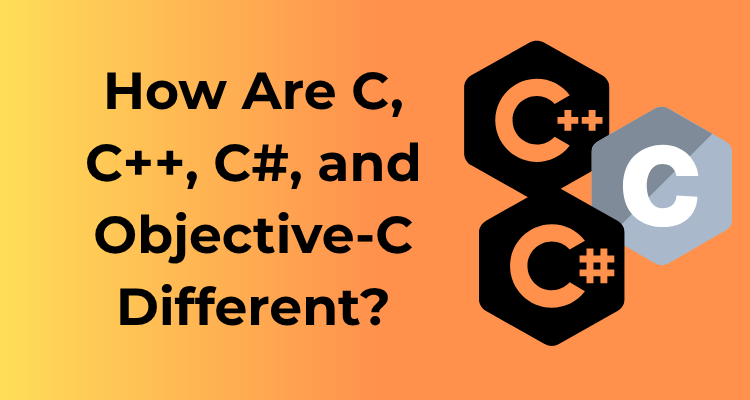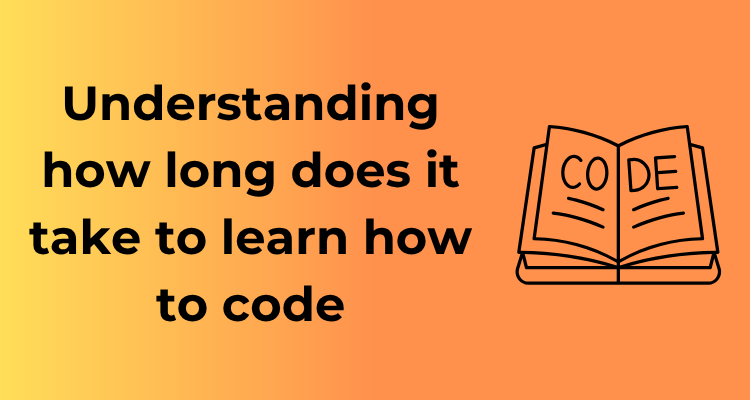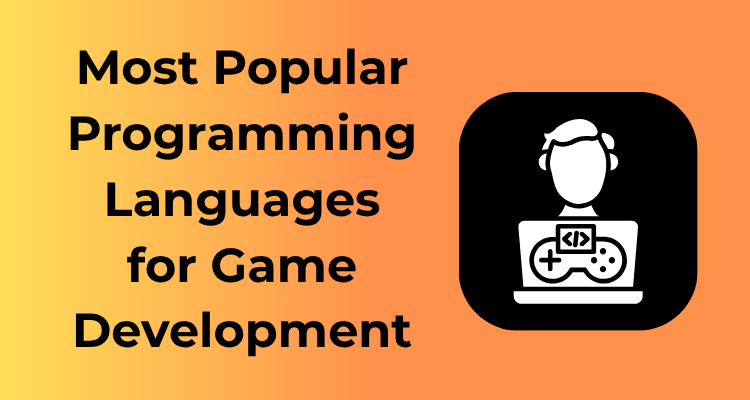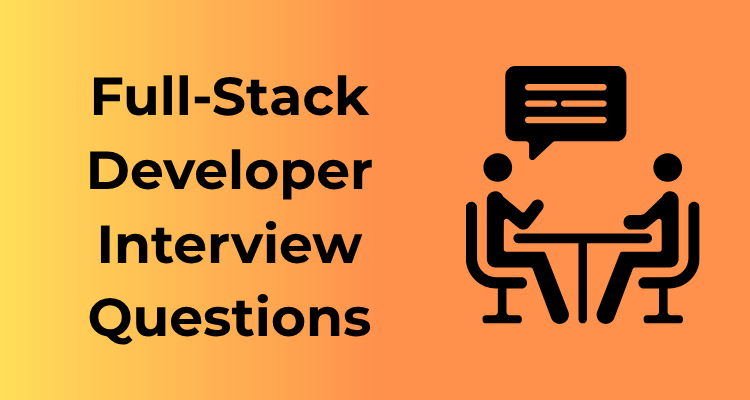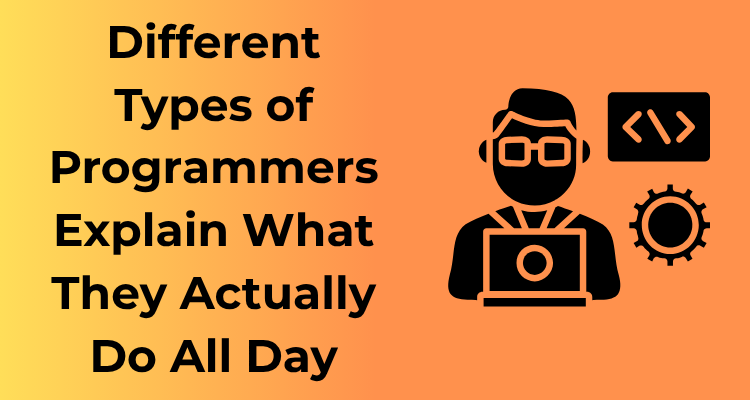Choosing the right programming language can feel overwhelming, especially when so many popular options share similar names. C, C++, C#, and Objective-C may look related at first glance, but each has its own identity, strengths, and use cases. Understanding how these languages differ—and how they evolved from the original C—helps you make smarter decisions as a developer. Whether you’re building systems, apps, or games, exploring the C family tree gives you a clearer picture of which language best aligns with your goals.
The Foundation: Tracing the Roots of C and Its Descendants
Ah, C! Where would we be without it? First developed in the early 1970s by Dennis Ritchie at Bell Labs, C emerged as a trailblazer. It was designed to help build operating systems like UNIX but quickly evolved into much more. Loved for its simplicity and power, C became the cornerstone on which numerous languages were built—and that’s where our story truly begins!
Let’s think of C as the parent of an extraordinary family. Over time, it has given rise to several offspring that inherited some of its traits while adding their own unique charm. These descendants—C++, C#, and Objective-C—each carved out a special place for themselves in the programming world, but understanding their roots is key to recognizing how they differ from one another.
C: The Founding Member

At its core, C was designed to be both powerful and lean. It gives programmers direct control over hardware components, like memory and processing power, allowing for efficient and high-performance programs. Sure, it comes with some risks—hello, memory management!—but it’s still widely revered for its speed and versatility. If programming were a cooking competition, C would be the one making everything from scratch, with meticulous control over every ingredient.
C++: The Elder Sibling
Enter C++ in the 1980s, spearheaded by Bjarne Stroustrup. Imagine C decided to wear a designer outfit while still holding onto its core values. C++ extended C with object-oriented programming (OOP) features, allowing programmers to organize code into reusable “objects”—a practice that was game-changing. It introduced new tools for abstraction, encapsulation, and code reuse, making it ideal for building larger, more complex systems like video games and operating systems.
C#: The Modern Cousin
C# greets us on the scene in the early 2000s, brought to life by Microsoft. Think of it as the polished, modern cousin of C and C++, designed with a strong emphasis on simplicity and safety. C# borrows some concepts from other languages, including Java, offering robust garbage collection and easy debugging for developers. Primarily associated with .NET development, C# is beloved by those building Windows apps, web apps, and even game development using Unity.
Objective-C: The Quirky Innovator
If C++ is modern and structured, Objective-C arrived as a breath of fresh air with its quirky charm. Developed in the 1980s and later adopted by Apple, Objective-C bridges the gap between C and OOP by adding Smalltalk-inspired features. Its primary claim to fame? Powering macOS and iOS for decades before Swift joined the game. While the “@” symbol-laden syntax may feel odd to newcomers, Objective-C remains respected for its contribution to the Apple ecosystem.
Why Does This Matter?
Understanding the origins and evolution of each descendant helps us appreciate their strengths. Whether you’re seeking control over hardware, building sophisticated systems, or wading into app development, learning how these languages relate to one another will provide you with a stronger foundation to choose the right tool for the job.
Syntax and Simplicity: How Each Language Addresses Programmers’ Needs
When it comes to programming, syntax can feel like the foreign language of coding. Think of it as the “grammar” rules of how you write and structure code in a given language. A language’s syntax can either make programming an absolute joy or a daunting puzzle. Let’s break down how C, C++, C#, and Objective-C shape their syntax to meet the needs of developers.
C: The Minimalist’s Dream
C, as the grandparent of many modern programming languages, is known for its simplicity and minimalism. It doesn’t overcomplicate things. Its syntax is straightforward yet robust, providing only what’s necessary without any fluff. For instance:
#include
int main() {
printf("Hello, World!");
return 0;
}
This is a classic “Hello, World!” program, simple and to the point. However, C does demand precision. Forgetting a semicolon or making a tiny typo can quickly trip you up. C is perfect if you want full control over your code, but it keeps you on your toes.
C++: A Swiss Army Knife of Syntax
Building on C, C++ adds a layer of sophistication (and complexity). While it inherits C’s syntax, it introduces new features like classes, templates, and exception handling. C++ offers increased flexibility but at the cost of a steeper learning curve:
#include
using namespace std;
int main() {
cout << "Hello, World!" << endl;
return 0;
}
This version of “Hello, World!” swaps out printf for cout, reflecting C++’s object-oriented enhancements. The syntax is more forgiving than C, thanks to its additional features, but you’ll notice increased verbosity in your coding endeavors.
C#: Cleaner, Crisp, and Closer to Modern Needs
C# was developed by Microsoft and feels like a polished evolution of C and C++. Its syntax is designed to be user-friendly, especially for developers working in modern environments like building applications for Windows or scalable web services. Take a look:
using System;
class Program {
static void Main() {
Console.WriteLine("Hello, World!");
}
}
You’ll notice it maintains the essence of its predecessors but removes some of the clunky aspects, making it more streamlined for contemporary programming needs. C# feels modern because it anticipates and supports everyday developer tasks, carrying a level of abstraction that simplifies the process.
Objective-C: A Vintage Yet Quirky Cousin
Objective-C, used primarily for macOS and iOS applications, has its unique twist on C syntax. While it retains C’s foundation, it adopts Smalltalk-style messaging (with square brackets!). Here’s a “Hello, World!” example:
#import
int main() {
NSLog(@"Hello, World!");
return 0;
}
The NSLog function and those square brackets might feel a bit alien at first, but this structure lets Objective-C shine when paired with Apple’s frameworks. For seasoned Apple developers, this syntax feels like home — but it can be a bit intimidating to newcomers.
Programming Paradigms: Procedural vs Object-Oriented Approaches
When it comes to programming, the debate between procedural and object-oriented paradigms is like choosing between tea and coffee—both have their places, yet they serve different tastes. Let’s dive into how C, C++, C#, and Objective-C align with these paradigms and what makes them stand out in the programming world.
C: The Procedural Pioneer
C is like the building blocks of modern programming. Designed as a procedural language, it focuses on a linear flow of execution. It’s all about writing step-by-step instructions to solve a problem. Think of it as writing a recipe—each step is explicit, and the computer follows them in order. This procedural nature makes C highly efficient and lightweight. No wonder it’s still the go-to choice for operating systems, embedded systems, and performance-critical tasks!
However, the flipside is that C doesn’t inherently support object-oriented programming (OOP) concepts like classes or objects. If you’re into keeping your code organized or handling complex systems with reusable components, this could be a limitation.
C++: The Best of Both Worlds
Enter C++, which takes the procedural power of C and turbocharges it with object-oriented features. With C++, you can work in both paradigms—procedural for straightforward, performance-focused tasks, and object-oriented for scenarios requiring modularity and abstraction.
Object-oriented programming in C++ revolves around pillars like inheritance, encapsulation, and polymorphism. These make creating scalable, maintainable software a dream! Imagine you’re building a video game: you can create classes for characters, weapons, and environments, and have them interact seamlessly. While this dual-paradigm flexibility is great, it can also make C++ code more complex to manage compared to stricter OOP languages.
C#: The Modern Object-Oriented Marvel
C# (pronounced “C-sharp”) is like the polished, modern sibling of the family. It embraces OOP wholeheartedly, designed with simplicity and developer productivity in mind. Created by Microsoft, this language aligns closely with object-oriented principles, emphasizing clean, manageable, and scalable code.
If you’re working with apps in the .NET framework or developing games using Unity, you’ll fall in love with C#. The language handles the nitty-gritty memory management for you (hello, garbage collection!) and comes with an array of built-in functionalities for object-oriented design. It’s also highly readable, which makes debugging and collaborating a breeze.
Objective-C: Object-Oriented with a Twist
Objective-C is like the eccentric artist of the group. This language blends C with Smalltalk-like messaging, giving it a unique flavor of object-oriented programming. Mainstream in Apple’s ecosystem for years (think iOS and macOS development), it allows developers to build robust, modular applications by heavily leveraging objects and classes.
One of Objective-C’s shining traits is its dynamic capabilities. It lets you decide object behaviors at runtime rather than at compile time, offering unparalleled flexibility. However, if you’re diving in fresh, Objective-C may feel less intuitive due to its unique syntax compared to modern OOP paradigms.
Performance and Efficiency: When Speed Truly Matters
If there’s one thing programmers universally crave, it’s performance. Speed and efficiency are like the holy grail of good code. When it comes to C, C++, C#, and Objective-C, these languages all bring something unique to the table in terms of performance. But there are some distinct differences in how they tackle the challenge of being fast and efficient. Let’s dive in, shall we?
Why Performance Matters
Performance becomes crucial when milliseconds make a difference. Think of systems like gaming engines, financial trading platforms, or real-time applications like medical devices. A delay of even a single second in those cases can spell disaster! In such scenarios, choosing a language that pushes your hardware to its limits is key.
C: The Grandfather of Speed
C earns its stellar reputation for performance because it operates close to the hardware. It doesn’t come with any of the overhead you’d find in more modern languages. This is great if you need total control over memory management and are laser-focused on efficiency. But beware: this control comes at the cost of responsibility. You need to carefully manage your memory, or bugs will sneak in to ruin your day.
C++: The Balanced All-Rounder
C++ builds directly on C’s performance while adding new capabilities like object-oriented programming and better abstractions. It still delivers breathtaking speed, but with smart optimizations and abstractions that help you write less error-prone (yet highly efficient) code. C++ is a go-to for industries like game development or high-performance application software where speed is non-negotiable. However, with great power comes great complexity.
C#: The Trade-Off

C#, unlike C and C++, runs on the .NET framework, which means it relies on a runtime environment. This adds a layer of abstraction, slightly reducing its raw speed. But don’t let that fool you—C# has advantages of its own. It provides automatic memory management through garbage collection, which minimizes certain bugs (like memory leaks). This makes it a strong contender for applications where development speed and scalability are more important than raw performance. Still, it’s worth noting that for the most performance-critical tasks, C# might not be your hero.
Objective-C: Where Performance Meets Legacy
Objective-C has long been known as Apple’s darling. Historically, it powered many macOS and iOS apps. Its performance is comparable to C and C++ because it builds on C. However, Objective-C also introduces dynamic runtime capabilities, which can add overhead compared to its strictly compiled, older sibling, C. Nowadays, Apple often nudges developers towards Swift, which further affects Objective-C’s popularity in performance-critical corners.
When Should You Care?
Not every project lives or dies by performance, but here’s a tip:
- If you’re doing systems programming, embedded systems, or multi-threading-heavy tasks, C or C++ is your friend.
- For applications where performant code still needs to be tempered with developer productivity and safety, C# shines.
- If you’re still deep in Apple’s ecosystem or maintaining legacy projects, Objective-C can be a reliable, albeit aging choice.
Platform Compatibility: Desktop, Web, and Beyond
When it comes to platform compatibility, the four languages—C, C++, C#, and Objective-C—offer unique strengths, tailored for specific purposes. Let’s dive into their capabilities in the modern tech landscape, while keeping things relatable and practical for programmers and curious minds alike!
C: The Ever-Reliable Workhorse
C is the grandparent of all these languages, and its cross-platform compatibility has stood the test of time. Since C code is compiled directly to machine code, you can write a program on Linux, for example, and port it to Windows or macOS with minimal adjustments (provided that you’re mindful of system-specific quirks). This portability has made C a favorite in industries like embedded systems and operating system development where hardware independence is key.
Pro tip: A well-written C program can conquer almost any platform with proper compilers and libraries!
C++: Crossing Platforms with Power
If C is the reliable workhorse, think of C++ as its turbocharged sibling. While inheriting C’s platform-agnostic DNA, C++ introduces object-oriented features and libraries like the Standard Template Library (STL) that make scalability and platform adaptation a breeze. Want to build a multiplayer game engine or software for both desktop and mobile? C++ has you covered with tools like Unreal Engine and libraries like SDL (Simple DirectMedia Layer).
Fun fact: Many major cross-platform software frameworks, such as Qt and wxWidgets, are built on C++—showcasing its power and portability!
C#: The Microsoft Champion Marching Toward Platform Freedom
Originally developed by Microsoft, C# found its first home within the Windows ecosystem as the go-to language for .NET applications. But things have changed! With the introduction of .NET Core (now .NET), C# has broken free from Windows-only shackles and is now a cross-platform contender. Want to build a web app or a cross-platform desktop application? Combine C# with tools like ASP.NET Core or Avalonia, and you’re good to go.
And don’t forget about gaming: Unity, one of the top engines for game development, relies heavily on C# and lets you export your games across multiple platforms including Android, iOS, PC, and even consoles.
Pro tip: C# shines brightest when you’re leveraging the .NET ecosystem for web or enterprise apps. Its wide-reaching compatibility is growing, but it may not yet rival C++ for the very low-level hardware-specific tasks.
Objective-C: Tailored for Apple’s Garden
If you’re living in the world of Apple, Objective-C is your steadfast companion. Back in its prime, Objective-C was the default language for developing apps on macOS and iOS. Though it’s been largely overshadowed by Swift in recent years, it still plays a critical role in Apple’s ecosystem, especially when maintaining or upgrading legacy apps.
Unlike C or C++, Objective-C is purpose-built for Apple’s platforms and leans heavily on tools like Xcode. It doesn’t strive to be cross-platform-friendly, but if you’re developing exclusively for Apple devices, it’s a beautifully specialized tool in your arsenal.
Which One Do You Choose?
- Pick C if hardware-agnostic portability is a must or you’re building something from the ground-up in an embedded system.
- Choose C++ for robust, high-performance applications that need scalability across multiple platforms.
- Opt for C# when building cross-platform enterprise apps, Unity games, or leveraging the expansive .NET framework.
- Go with Objective-C if you’re entrenched in the Apple ecosystem and need solutions tailored for macOS and iOS.
Platform compatibility matters, and understanding the strengths of each language can make your development journey not just effective but enjoyable too. So whether you’re creating the next big app, tinkering with game engines, or innovating in the embedded world, there’s a language here for every goal. Happy coding!
Toolsets and Ecosystem: The Development Environment Experience
When we analyze the appeal of programming languages like C, C++, C#, and Objective-C, one crucial factor to consider is their toolsets and ecosystems. A great development environment can make or break a programmer’s productivity, and each language brings its unique flavor to the table. Let’s dive into what makes each ecosystem tick.
The Tools: IDEs and Beyond
C: Being a foundational language, C has widespread support across almost all Integrated Development Environments (IDEs) and text editors. Lightweight editors like Vim and Sublime Text are often preferred by purists, while more feature-filled IDEs like Visual Studio Code and Code::Blocks also support C seamlessly. However, C lacks language-specific bells and whistles, often providing a barebones experience.
C++: With C++, you’ll enjoy a robust set of tools for larger, more complex projects. IDEs like CLion, Eclipse CDT, and Microsoft Visual Studio offer debugging support, refactoring tools, and integration with frameworks like Qt. This makes C++ ideal for tackling large-scale applications while still retaining control over the minutiae.
C#: Entering the world of C# is like stepping into a plush, user-friendly realm. Its home base, Microsoft’s Visual Studio, is well-known for being one of the most feature-rich and polished IDEs. With built-in tools for debugging, performance analyzers, and seamless integration with Azure cloud services, C# optimizes productivity for developers focusing on Windows-based software, games, and enterprise solutions.
Objective-C: If you’ve ever built an app for Apple’s ecosystem, you’ll know Objective-C thrives in Apple’s Xcode. Xcode isn’t just an IDE—it’s a toolkit meticulously designed for macOS and iOS development. With a drag-and-drop interface builder and features like live rendering and dynamic refactoring, Xcode simplifies the creation of sleek, high-performance apps.
The Ecosystems: Libraries and Community Support
- C: C’s ecosystem is simple yet powerful. It’s bolstered by numerous standard libraries and decades of community knowledge. If you’re coding in C, there’s a high chance your problem has already been solved on forums like Stack Overflow or GitHub.
- C++: With its more modern ecosystem, C++ supports libraries like the Standard Template Library (STL) and frameworks such as Boost. The vast community ensures that your journey with C++ is well-supported, but its complexity can feel intimidating for beginners.
- C#: The C# community, powered by Microsoft’s backing, offers extensive documentation, tutorials, and libraries. Whether you’re building desktop applications, web services with .NET, or Unity games, the ecosystem feels highly curated and developer-friendly.
- Objective-C: Although Objective-C is being overshadowed by Swift, it remains entrenched in Apple’s ecosystem. Developers still benefit from Apple’s rich API libraries and active forums, although it doesn’t quite match C#’s sprawling community.
The Experience: Choosing the Right Fit
When it comes to comfort and efficiency, the development environment plays a pivotal role. For hands-on enthusiasts and system-level programming aficionados, C and C++ provide the raw, flexible tools to build projects from scratch. On the other hand, developers wanting ease of use and polished tools often gravitate toward C#, while those in Apple’s ecosystem still rely heavily on Objective-C.
Real-World Applications: Matching Languages with Industry Use Cases
When it comes to real-world applications, the differences between C, C++, C#, and Objective-C really start to shine. Each of these languages is built on core C concepts but tailored to suit specific use cases in unique industries. Let’s dive into where each language fits perfectly in the real world, shall we?
C: The Workhorse of Operating Systems
Ah, good ol’ C! If you’re using a computer, smartphone, or just about any device, there’s a good chance C is running silently in the background. Due to its incredible performance and proximity to hardware, C remains the go-to for building:
- Operating systems: Yes, Unix and Linux systems owe their creation to C. Even parts of Windows are grounded here.
- Embedded systems: From microwaves to cars, C powers many embedded devices where hardware control is crucial.
- System-level utilities: Compilers, databases like MySQL, and other low-level tools rely on C’s speed and efficiency.
If you’re venturing into the world of system design or embedded devices, mastering C is almost non-negotiable. It’s minimalistic and packs a performance punch like no other!
C++: The Power Player in Game Development
If C is the foundation, C++ is the skyscraper built on top. Thanks to its ability to marry speed and object-oriented programming (OOP), C++ conquers industries that demand heavy processing power and complex architectures. It’s often championed in:
- Game development: Some of the world’s most popular game engines—like Unreal Engine—are powered by C++. Its raw computational power makes it ideal for rendering graphics, handling physics calculations, and more.
- Finance and high-frequency trading: Standing milliseconds above the competition can mean millions—hence, financial algorithms often trust C++ for their lightning-fast execution.
- Desktop applications: High-performance tools like Adobe Photoshop utilize C++ for seamless user experiences.
Thinking about career options in gaming or finance? C++ is your ticket to a high-performance future!
C#: A Masterpiece for Windows and Beyond
Developed by Microsoft, C# (pronounced “C-sharp”) stands tall in the world of software development for Windows environments. However, it’s not just limited to Microsoft products—it thrives in a variety of modern industries:
- Enterprise applications: Thanks to its robust libraries and frameworks, C# is a staple for building scalable, secure business solutions.
- Cross-platform applications: Using .NET and Xamarin, developers can create apps that work beautifully across Windows, macOS, iOS, and Android.
- Game development: Unity, one of the top game engines, uses C# as its primary programming language, making it fantastic for indie and VR game creators.
Looking to work at a tech giant or unleash creativity in app and game design? Then, C# might quickly become your favorite!
Objective-C: Keeping iOS Development Alive
While Swift seems to steal the spotlight in Apple’s ecosystem, Objective-C still has a dedicated place in the hearts of iOS and macOS developers. It’s particularly relevant for:
- Maintaining legacy Apple apps: Many older applications and systems on Apple devices are still rooted in Objective-C.
- Developing iOS/macOS apps: Though less popular compared to Swift, Objective-C remains a trusted tool for iOS development veterans familiar with its syntax.
If you want to step into Apple’s ecosystem or maintain existing legacy apps, don’t count Objective-C out just yet!

